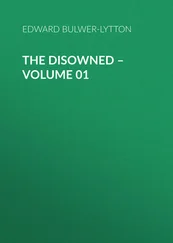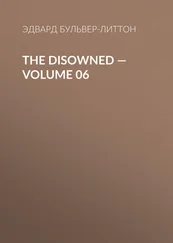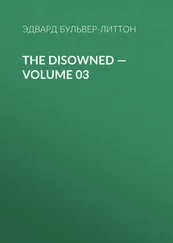Эдвард Бульвер-Литтон - The Disowned — Complete
Здесь есть возможность читать онлайн «Эдвард Бульвер-Литтон - The Disowned — Complete» — ознакомительный отрывок электронной книги совершенно бесплатно, а после прочтения отрывка купить полную версию. В некоторых случаях можно слушать аудио, скачать через торрент в формате fb2 и присутствует краткое содержание. Жанр: foreign_prose, literature_19, Европейская старинная литература, foreign_antique, на английском языке. Описание произведения, (предисловие) а так же отзывы посетителей доступны на портале библиотеки ЛибКат.
- Название:The Disowned — Complete
- Автор:
- Жанр:
- Год:неизвестен
- ISBN:нет данных
- Рейтинг книги:5 / 5. Голосов: 1
-
Избранное:Добавить в избранное
- Отзывы:
-
Ваша оценка:
- 100
- 1
- 2
- 3
- 4
- 5
The Disowned — Complete: краткое содержание, описание и аннотация
Предлагаем к чтению аннотацию, описание, краткое содержание или предисловие (зависит от того, что написал сам автор книги «The Disowned — Complete»). Если вы не нашли необходимую информацию о книге — напишите в комментариях, мы постараемся отыскать её.
The Disowned — Complete — читать онлайн ознакомительный отрывок
Ниже представлен текст книги, разбитый по страницам. Система сохранения места последней прочитанной страницы, позволяет с удобством читать онлайн бесплатно книгу «The Disowned — Complete», без необходимости каждый раз заново искать на чём Вы остановились. Поставьте закладку, и сможете в любой момент перейти на страницу, на которой закончили чтение.
Интервал:
Закладка:
“Ill guarded!” said Talbot, rather affronted, “why, I and my servant always sleep here!”
To this Clarence thought it neither prudent nor well-bred to offer further remark.
CHAPTER XVII
Meetings or public calls he never missed,
To dictate often, always to assist.
.....
To his experience and his native sense,
He joined a bold, imperious eloquence;
The grave, stern look of men informed and wise,
A full command of feature, heart and eyes,
An awe-compelling frown, and fear-inspiring size.
The next evening Clarence, mindful of Wolfe’s invitation, inquired from Warner (who repaid the contempt of the republican for the painter’s calling by a similar feeling for the zealot’s) the direction of the oratorical meeting, and repaired there alone. It was the most celebrated club (of that description) of the day, and well worth attending, as a gratification to the curiosity, if not an improvement to the mind.
On entering, he found himself in a long room, tolerably well lighted, and still better filled. The sleepy countenances of the audience, the whispered conversation carried on at scattered intervals, the listless attitudes of some, the frequent yawns of others, the eagerness with which attention was attracted to the opening door, when it admitted some new object of interest, the desperate resolution with which some of the more energetic turned themselves towards the orator, and then, with a faint shake of the head, turned themselves again hopelessly away,—were all signs that denoted that no very eloquent declaimer was in possession of the “house.” It was, indeed, a singularly dull, monotonous voice which, arising from the upper end of the room, dragged itself on towards the middle, and expired with a sighing sound before it reached the end. The face of the speaker suited his vocal powers; it was small, mean, and of a round stupidity, without anything even in fault that could possibly command attention or even the excitement of disapprobation: the very garments of the orator seemed dull and heavy, and, like the Melancholy of Milton, had a “leaden look.” Now and then some words, more emphatic than others,—stones breaking, as it were with a momentary splash, the stagnation of the heavy stream,—produced from three very quiet, unhappy-looking persons seated next to the speaker, his immediate friends, three single isolated “hears!”
“The force of friendship could no further go.”
At last, the orator having spoken through, suddenly stopped; the whole meeting seemed as if a weight had been taken from it; there was a general buzz of awakened energy, each stretched his limbs, and resettled himself in his place,—
“And turning to his neighbour said,
‘Rejoice!’”
A pause ensued, the chairman looked round, the eyes of the meeting followed those of the president, with a universal and palpable impatience, towards an obscure corner of the room: the pause deepened for one moment, and then was broken; a voice cried “Wolfe!” and at that signal the whole room shook with the name. The place which Clarence had taken did not allow him to see the object of these cries, till he rose from his situation, and, passing two rows of benches, stood forth in the middle space of the room; then, from one to one went round the general roar of applause; feet stamped, hands clapped, umbrellas set their sharp points to the ground, and walking-sticks thumped themselves out of shape in the universal clamour. Tall, gaunt, and erect, the speaker possessed, even in the mere proportions of his frame, that physical power which never fails, in a popular assembly, to gain attention to mediocrity and to throw dignity over faults. He looked very slowly round the room, remaining perfectly still and motionless, till the clamour of applause had entirely subsided, and every ear, Clarence’s no less eagerly than the rest, was strained, and thirsting to catch the first syllables of his voice.
It was then with a low, very deep, and somewhat hoarse tone, that he began; and it was not till he had spoken for several minutes that the iron expression of his face altered, that the drooping hand was raised, and that the suppressed, yet powerful, voice began to expand and vary in its volume. He had then entered upon a new department of his subject. The question was connected with the English constitution, and Wolfe was now preparing to put forth, in long and blackened array, the alleged evils of an aristocratical form of government. Then it was as if the bile and bitterness of years were poured forth in a terrible and stormy wrath,—then his action became vehement, and his eye flashed forth unutterable fire: his voice, solemn, swelling, and increasing with each tone in its height and depth, filled, as with something palpable and perceptible, the shaking walls. The listeners,—a various and unconnected group, bound by no tie of faith or of party, many attracted by curiosity, many by the hope of ridicule, some abhorring the tenets expressed, and nearly all disapproving their principles or doubting their wisdom,—the listeners, certainly not a group previously formed or moulded into enthusiasm, became rapt and earnest; their very breath forsook them.
Linden had never before that night heard a public speaker; but he was of a thoughtful and rather calculating mind, and his early habits of decision, and the premature cultivation of his intellect, rendered him little susceptible, in general, to the impressions of the vulgar: nevertheless, in spite of himself, he was hurried away by the stream, and found that the force and rapidity of the speaker did not allow him even time for the dissent and disapprobation which his republican maxims and fiery denunciations perpetually excited in a mind aristocratic both by creed and education. At length after a peroration of impetuous and magnificent invective, the orator ceased.
In the midst of the applause that followed, Clarence left the assembly; he could not endure the thought that any duller or more commonplace speaker should fritter away the spell which yet bound and engrossed his spirit.
CHAPTER XVIII
At the bottom of the staircase was a small door, which gave way before Nigel, as he precipitated himself upon the scene of action, a cocked pistol in one hand, etc.—Fortunes of Nigel.
The night, though not utterly dark, was rendered capricious and dim by alternate wind and rain; and Clarence was delayed in his return homeward by seeking occasional shelter from the rapid and heavy showers which hurried by. It was during one of the temporary cessations of the rain that he reached Copperas Bower; and, while he was searching in his pockets for the key which was to admit him, he observed two men loitering about his neighbour’s house. The light was not sufficient to give him more than a scattered and imperfect view of their motions. Somewhat alarmed, he stood for several moments at the door, watching them as well as he was able; nor did he enter the house till the loiterers had left their suspicious position, and, walking onwards, were hid entirely from him by the distance and darkness.
“It really is a dangerous thing for Talbot,” thought Clarence, as he ascended to his apartment, “to keep so many valuables, and only one servant, and that one as old as himself too. However, as I am by no means sleepy, and my room is by no means cool, I may as well open my window, and see if those idle fellows make their re-appearance.” Suiting the action to the thought, Clarence opened his little casement, and leaned wistfully out.
He had no light in his room, for none was ever left for him. This circumstance, however, of course enabled him the better to penetrate the dimness and haze of the night; and, by the help of the fluttering lamps, he was enabled to take a general though not minute survey of the scene below.
Читать дальшеИнтервал:
Закладка:
Похожие книги на «The Disowned — Complete»
Представляем Вашему вниманию похожие книги на «The Disowned — Complete» списком для выбора. Мы отобрали схожую по названию и смыслу литературу в надежде предоставить читателям больше вариантов отыскать новые, интересные, ещё непрочитанные произведения.
Обсуждение, отзывы о книге «The Disowned — Complete» и просто собственные мнения читателей. Оставьте ваши комментарии, напишите, что Вы думаете о произведении, его смысле или главных героях. Укажите что конкретно понравилось, а что нет, и почему Вы так считаете.












